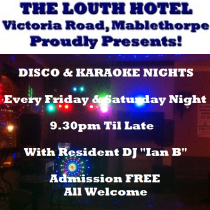How Can Social Media Cause Anxiety: Psychological Impact Studies
You might not realize it, but your social media habits could be fueling your anxiety more than you think. From constant comparisons with others to the pressure of external validation, the impact can be profound. Have you ever considered how the fear of missing out or even online bullying plays into your mental health? Understanding these dynamics is essential, and the implications are deeper than you’d expect. What happens when you look closer?
Understanding the Link Between Social Media and Anxiety
Social media platforms have become a ubiquitous part of modern life, yet their impact on mental well-being is a subject of ongoing research. Many users report experiencing heightened levels of anxiety, which may be attributed to factors such as fear of missing out (FOMO) and social comparison.
Studies indicate a correlation between extensive social media use and increased stress and depressive symptoms. For instance, a survey revealed that 48% of teenagers who spend five hours a day on their devices exhibit at least one risk factor for suicide.
Limiting time spent on these platforms may mitigate some of these negative effects. Research suggests that reducing social media usage to approximately 30 minutes a day can lead to a significant decrease in anxiety levels among users.
Awareness of how social media influences mental health is important for promoting healthier habits and overall well-being.
The Psychological Mechanisms Behind Social Media's Impact
Understanding the impact of social media on mental health involves examining the psychological mechanisms involved. Research indicates that social media interactions can engage the brain's reward system, leading to the release of dopamine. This process may create a dependency on external validation through likes and comments, potentially increasing anxiety levels when individuals seek such validation.
Furthermore, users often experience feelings of FOMO (fear of missing out) as they're exposed to carefully curated portrayals of others' lives, which can contribute to stress related to social connections.
Moreover, the prevalence of cyberbullying and negative remarks on social media platforms is associated with detrimental effects on mental health. Studies have shown a correlation between online bullying and heightened anxiety among individuals.
Additionally, excessive engagement with social media can disrupt sleep patterns, which exacerbates stress and fatigue. These factors collectively contribute to an adverse impact on overall well-being, highlighting the need for awareness and moderation in social media usage.
Social Media’s Role in Promoting Comparisons and Self-Doubt
Social media platforms often display an edited and curated version of individuals' lives, which can lead users to engage in social comparison. This tendency is particularly pronounced among younger demographics, where exposure to idealized images can result in self-doubt and negative self-perception.
Research indicates that the use of filters and altered photos contributes to unrealistic beauty standards, which can intensify feelings of inadequacy among users.
In addition to visual comparisons, extensive use of social media has been linked to adverse mental health outcomes. Studies suggest that prolonged online activity may increase the risk of suicidal thoughts and behaviors.
Furthermore, the prevalence of cyberbullying on these platforms poses additional challenges; reports indicate that a significant portion of internet users experience incidents that negatively impact their self-esteem, contributing to heightened anxiety and feelings of missing out on fulfilling experiences.
These factors collectively underscore the complex relationship between social media use and mental health, necessitating a critical examination of its effects on individuals' well-being.
The Fear of Missing Out (FOMO) and Its Consequences
FOMO, or the Fear of Missing Out, is a psychological phenomenon that has been significantly influenced by the rise of social media.
This environment can magnify feelings of anxiety and inadequacy as individuals engage in constant comparisons with their peers. Users often experience a sense of exclusion from social events that they observe online, which can exacerbate feelings of isolation.
Research indicates that this phenomenon not only heightens feelings of social exclusion, but it also contributes to adverse mental health effects, including heightened anxiety and depression.
The pressure to remain informed about social happenings can lead to increased stress levels, particularly when individuals perceive that others are enjoying experiences they weren't privy to.
Studies have shown a correlation between higher levels of FOMO and increased rates of adverse mental health outcomes.
This relationship suggests that FOMO can trap individuals in a cycle of dissatisfaction and emotional distress, thereby highlighting the need for awareness and coping strategies in the context of social media use.
Cyberbullying and Its Effects on Mental Health
As social media continues to play a significant role in everyday communication, the phenomenon of cyberbullying has become a critical concern, affecting a diverse range of individuals. Research indicates that approximately 44% of individuals may experience some form of cyberbullying, which can lead to serious mental health challenges.
Victims frequently encounter increased levels of anxiety, depression, and various psychological difficulties stemming from ongoing harassment.
The anonymity provided by social media platforms can exacerbate this damaging behavior, as it allows individuals to target others without facing immediate repercussions. This situation can lead to feelings of isolation and social withdrawal, which, in turn, may further deteriorate the victim's mental well-being.
In severe cases, individuals may be at a heightened risk for critical issues, including suicidal ideation and self-harming tendencies.
Addressing the implications of cyberbullying on mental health is essential for developing effective interventions and support systems for affected individuals.
Addiction to Social Media: A New Age Dependency
The rise of social media has introduced various challenges, one of which is the potential for addiction. Prolonged use of social media platforms can activate the brain's reward system, leading users to seek validation through likes and comments as a means of enhancing self-esteem.
This dependency can contribute to increased levels of anxiety and negatively impact mental health, particularly among university students, approximately 76% of whom engage regularly with these platforms.
Further, the tendency to compare oneself to the curated images and lifestyles presented online can exacerbate feelings of fear of missing out (FOMO) and dissatisfaction with one's own life. The design of social media platforms is inherently geared towards encouraging continuous interaction, which makes it challenging for users to impose limits on their engagement.
This environment often heightens feelings of loneliness and inadequacy, contributing to a concerning trend of dependability on social media for emotional fulfillment.
Strategies to Mitigate Anxiety Linked to Social Media Use
While social media usage can contribute to anxiety, there are practical strategies that can help individuals manage their usage and improve their overall mental well-being. One approach is to implement time limits for social media engagement. Research indicates that reducing usage to as little as 30 minutes a day may correlate with lower levels of anxiety and depression.
To assist in this process, users can take advantage of built-in wellness features or use timers to track their social media habits. This monitoring can facilitate more deliberate decisions regarding online activity.
Additionally, maintaining a consistent awareness of one's emotional responses during social media interactions is important. Gradually decreasing the amount of time spent on these platforms may lead to improvements in mental health over time.
Implementing these strategies can't only help to mitigate feelings of anxiety but also encourage more beneficial emotional experiences, thereby fostering a healthier relationship with social media.
The Importance of Offline Connections for Mental Well-Being
Offline connections play a significant role in contributing to mental well-being. Engaging in face-to-face interactions has been shown to improve mental health by decreasing feelings of loneliness and anxiety.
Research indicates that participation in physical activities, such as team sports or group outings, can enhance social connections and lead to a sense of fulfillment.
Studies have demonstrated that in-person relationships are associated with lower levels of anxiety and depression, particularly among younger individuals. Balancing the time spent on screen with meaningful offline experiences can thus be beneficial in promoting overall well-being and mitigating feelings of isolation and inadequacy.
Conclusion
In conclusion, it’s clear that social media can significantly impact your mental well-being, fostering feelings of anxiety through comparison, FOMO, and even cyberbullying. To protect your mental health, consider reducing your social media use and focusing on building offline connections. By doing so, you can minimize the pressure of online validation and nurture meaningful relationships that truly support your well-being. Remember, prioritizing real-life interactions can create a healthier balance and ultimately lead to a more fulfilling life.









Comments